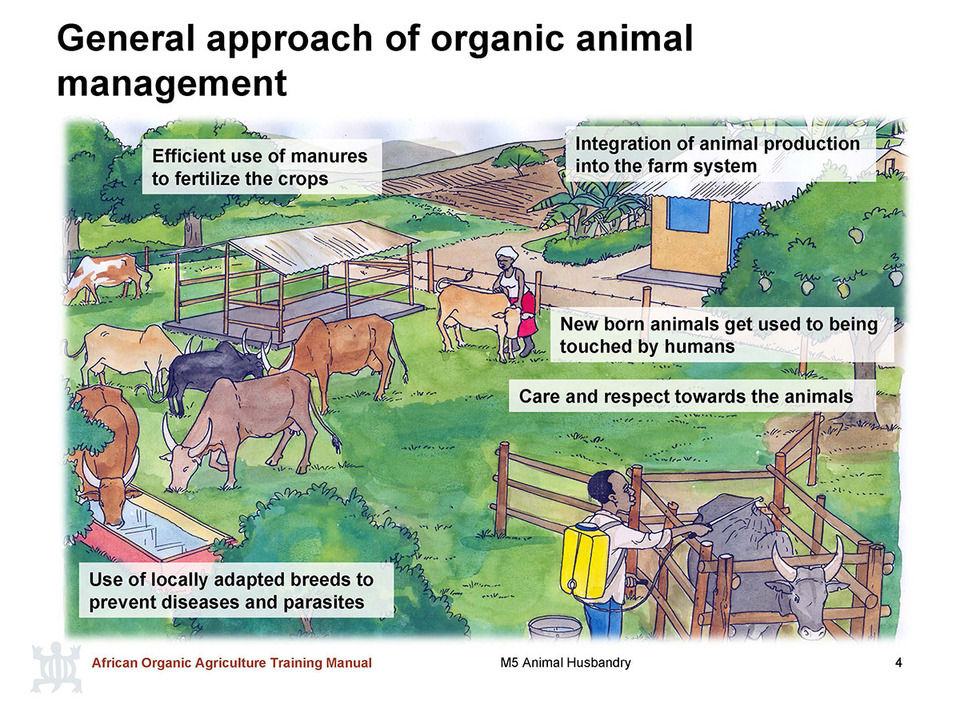General approach to organic management of animals
Managing animals organically implies keeping animals in good health and under good living conditions by carefully selecting locally adapted animal species and breeds, using adequate organic materials for feeding, providing good animal care and housing and protecting them against parasites and diseases without depending on the use of chemical drugs and antibiotics.
Organic farmers have a distinctively different approach to animal management from traditional and intensive farmers. Organic farmers aim at having good animal productivity by applying the following principles:
- They show care and respect towards the animals by protecting their well-being and avoiding harmful and stressful conditions. The farmers provide spacious housing that allows the animals to express their natural behaviour such as moving freely and having social interactions. They feed the animals properly to enable natural growth and good health.
- Through the use of strong and locally adapted breeds and providing appropriate feeding and housing, organic farmers strive to prevent infections with diseases and parasites rather than focusing on treatment.
- Organic farmers further ensure that suitable types of livestock and appropriate numbers are kept depending on the size of the farm, type and amount of feed available, availability of labour and the market for the surplus animal products. Availability of labour is very important because it is required for preparing feed and for feeding, periodic cleaning of the animal house, collection of the products and regular observation of the animals. In the beginning, considerable labour is also needed for building the animal house and clearing of the grazing paddocks.
- Organic farmers strive to properly integrate animal production with other enterprises on the farm to ensure that the different enterprises complement each other. For example a farmer may decide to combine poultry and aquaculture. The poultry manure can be used to fertilize the pond so that the growth of algae is enhanced, which serves as food for the fish. Vegetables can be grown along the banks of the pond to feed the poultry. After harvesting the fish, the fish bones can be roasted and mixed into the poultry feed.
- Organic farmers avoid pollution of the environment by ensuring appropriate collection and storage of animal manures and other waste products. Manures are prepared into compost and efficiently used to fertilize the crops.
- Organic farmers make new born animals get used to being handled and touched by humans, as this will tame the animals and make handling easier at later stages in their lives.

 tap and then scroll down to the Add to Home Screen command.
tap and then scroll down to the Add to Home Screen command.